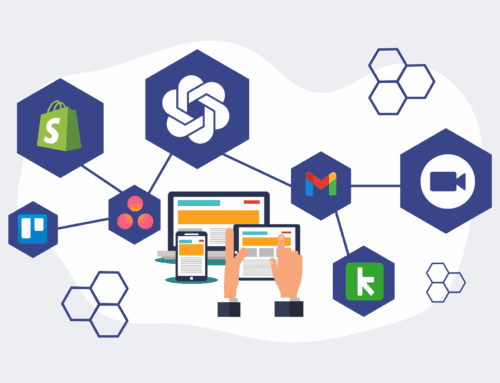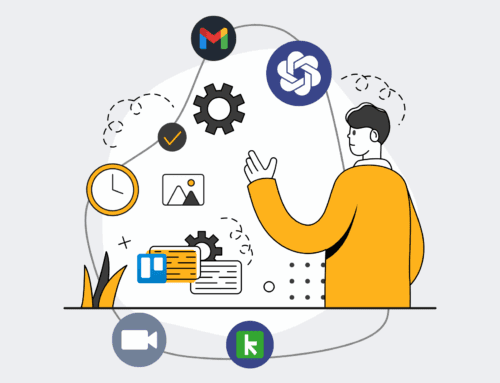Deep Dive: Machine Learning Algorithms Powering Intelligent Resume Analysis
In today’s hyper-competitive talent landscape, the sheer volume of job applications can overwhelm even the most robust HR departments. Traditional resume screening, a labor-intensive and often subjective process, leads to missed opportunities, prolonged hiring cycles, and significant operational costs. This is where the strategic application of Machine Learning (ML) algorithms steps in, transforming what was once a bottleneck into a streamlined, insightful, and highly efficient component of the recruitment process.
At 4Spot Consulting, we understand that for business leaders, the goal isn’t just about adopting new technology; it’s about driving tangible outcomes: reducing human error, lowering operational costs, and increasing scalability. Intelligent resume analysis, powered by advanced ML, is a prime example of how AI can deliver precisely these results within the HR and recruiting functions.
The Fundamental Challenge of Traditional Resume Screening
Imagine sifting through hundreds, if not thousands, of resumes for a single role. Beyond the time commitment, human screeners are susceptible to unconscious biases, fatigue, and inconsistencies in evaluation criteria. Key skills or experiences might be overlooked, or conversely, unqualified candidates might progress, wasting interviewers’ valuable time. The traditional approach, while foundational, is fundamentally inefficient for modern enterprise needs, especially when specialized roles demand a nuanced understanding of candidate profiles.
How Machine Learning Revolutionizes Resume Analysis
Machine Learning brings a level of precision, speed, and objectivity to resume analysis that manual methods simply cannot match. By leveraging complex algorithms, systems can learn to identify patterns, extract relevant information, and make predictions or classifications based on vast datasets of successful candidate profiles and job descriptions. This goes far beyond simple keyword matching, delving into contextual understanding and the relationships between different data points.
Natural Language Processing (NLP) for Semantic Understanding
The cornerstone of intelligent resume analysis is Natural Language Processing (NLP). Resumes are unstructured text, full of nuances, synonyms, and domain-specific jargon. NLP algorithms allow machines to understand human language, not just recognize words. This means they can:
- Extract Entities: Identify and categorize key information like names, contact details, education, work experience, skills, and certifications.
- Semantic Search: Understand the meaning behind phrases, allowing for more intelligent matching. For example, understanding that “full-stack developer” implies proficiency in both front-end and back-end technologies, even if every specific skill isn’t listed.
- Summarization: Condense lengthy descriptions into key highlights, making it easier for recruiters to grasp the core of a candidate’s profile.
- Sentiment Analysis: In some advanced applications, NLP can even infer soft skills or cultural fit from the language used, though this remains an area of ongoing development and ethical consideration.
Classification Algorithms for Candidate Matching
Once NLP has processed and structured the resume data, classification algorithms come into play. These algorithms are trained on datasets of past hires and successful placements, learning to classify new candidates based on their likelihood of success for a given role. Common algorithms include:
- Support Vector Machines (SVMs): Effective for separating candidates into categories (e.g., “highly qualified,” “moderately qualified,” “not a fit”) by finding the optimal hyperplane in a multi-dimensional feature space.
- Decision Trees and Random Forests: These algorithms build a model of decisions based on specific features (skills, experience, education), allowing for transparent and interpretable classification paths. Random Forests combine multiple decision trees to improve accuracy and reduce overfitting.
- Neural Networks (Deep Learning): Particularly powerful for complex pattern recognition, neural networks can learn intricate relationships between various resume features and job requirements, often achieving state-of-the-art performance in highly nuanced matching scenarios. These are the engines behind truly “intelligent” systems, capable of identifying subtle signals that humans might miss.
Clustering for Talent Pooling and Market Insights
Beyond individual candidate matching, ML also excels at identifying broader patterns. Clustering algorithms group similar resumes together without prior labeling. This is invaluable for:
- Talent Pooling: Automatically creating pools of candidates with similar skill sets, even for roles that aren’t actively open. This proactive approach allows organizations to quickly tap into qualified talent when needs arise.
- Market Analysis: Gaining insights into the prevalence of certain skills, emerging talent trends, or competitor hiring patterns by analyzing vast repositories of anonymized resume data.
The Impact on Business Outcomes
For organizations like yours, the shift to ML-powered resume analysis translates directly into measurable benefits:
- Reduced Time-to-Hire: Automated screening significantly shortens the initial review phase, accelerating the entire recruitment pipeline.
- Improved Candidate Quality: Objective, data-driven matching ensures that only the most relevant candidates are advanced, increasing the quality of hires.
- Cost Savings: Less time spent on manual screening and fewer mis-hires lead to substantial reductions in recruitment-related operational costs.
- Enhanced Scalability: The ability to process thousands of applications with consistent quality means your recruitment function can scale effortlessly with business growth.
- Mitigated Bias: While not a silver bullet, ML systems, when carefully trained on unbiased data, can reduce human cognitive biases inherent in traditional screening.
Implementing such sophisticated AI solutions requires strategic planning and expert integration. At 4Spot Consulting, our OpsMesh framework and OpsBuild services are designed to help high-growth B2B companies integrate AI-powered operations, including advanced HR and recruiting automation. We’ve seen first-hand how automating resume intake and parsing, combined with AI enrichment, can save clients over 150 hours per month, transforming their hiring efficiency.
The era of intelligent resume analysis isn’t just a technological marvel; it’s a strategic imperative for any organization looking to optimize its talent acquisition and operational efficiency. By understanding and harnessing the power of these machine learning algorithms, businesses can secure the right talent faster, smarter, and more profitably.
If you would like to read more, we recommend this article: The Future of AI in Business: A Comprehensive Guide to Strategic Implementation and Ethical Governance








